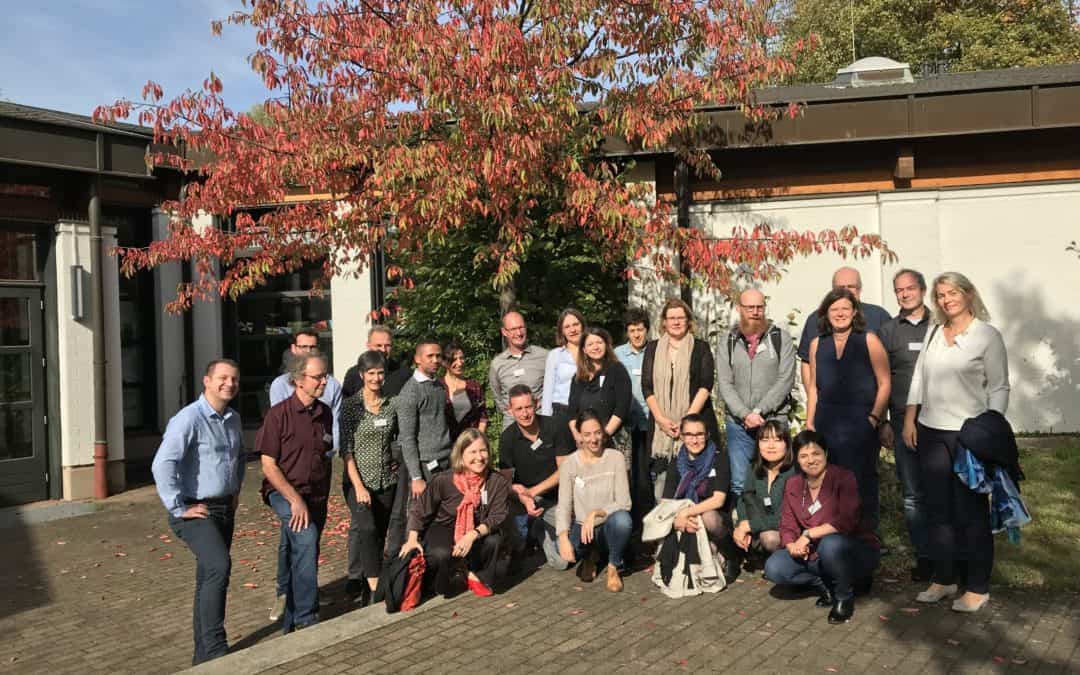Diverse crops with diverse microbiomes for diverse diets for human health and resilient production – the main message from the 2nd EPSO workshop on Plants and Microbiomes held in Vienna October 2018. Diversity matters increasingly and is fundamental towards achieving the UN Sustainability Goals, such as SDG 2 ‘Zero hunger’, SDG 3 ‘Health and wellbeing’, SDG 12 ‘responsible consumption and production’, SDG 13 ‘Climate action’, SDG 15 ‘Life on land’.
Participants assessed progress on implementing recommendations on research and innovation, education, communication, regulation and policy from the first workshop by presenting ongoing and starting initiatives at (multi-)national and European level, discussing the recommendations form the 1st workshop and concluding what is well under way and identifying gaps to be considered at (multi-) national as well as European levels and beyond, e.g. towards the strategic programming for Horizon Europe, the European research and innovation programme 2021-2027.
These gaps and possible actions are highlighted in the 2nd report and led to two major themes for the 3rd workshop in 2020: ‘From Correlation to Causation – from Lab to Field to Ecosystems’, to first identify the causes underlying microbiome functioning at the laboratory scale, take these then further to the field and finally ecosystem levels. This will include, among others, mechanisms of plants to attract and beneficially interact with microorganisms, and what makes a beneficial mix of microbiomes fit for agriculture to survive in field conditions for the time needed. The second theme will be ‘Plants and Microbiomes Research Infrastructure’, discussing how to establish European (distributed) cultured collections, considering a ‘plant microbiota vault’ as complementary long-term microbial resource for plant health, the use of microbiota in phenotyping facilities and related open access databases integrating (plant) microbiome and meta-data required.
A third gap identified is suggested as theme for a 4th workshop: ‘Understanding the interaction of plants (e.g. secondary metabolites) with the animal and human microbiomes, which is likely to affect animal/human health’, possibly jointly with the EPSO Working Group on Nutritional Security.
Actions on training and communication will be taken by the scientific community, whereas legal experts need to look at the challenges in regulations – possibly advanced by the companies active in the field.
EPSO invites scientists, industrial and farming experts as well as policy makers to collaborate on further implement the recommendations to contribute to Environmental sustainability, food and nutritional security as well as human health.
Read the full ‘Report with recommendations’ and the ‘Annex to the report’.
